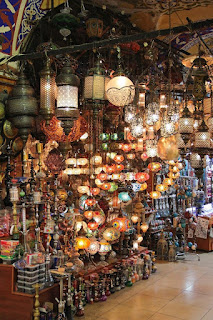Discuss “Araby” as a short story
The short story is a highly complex form of literary art, presenting a single segment of life with its brevity and concentration. In his attempt to communicate an essential aesthetic vision. James Joyce creates a special style of short story that became almost like an objective correlative of the reality experienced by him. In “Araby”, as in other stories in Dubliners, he presents a captured frame portraying the decadence of vitality, a degeneration characterizing the modern world of spiritual paralysis. At the same time, his presentation conforms to the accepted codes of typical story-telling techniques.
The story, about a young boy, different and hence alienated from the insensitive humanity surrounding him, is a perfect representation of the author’s own sense of futility. The narrator’s intense desire to attend the fete “Araby” and his frustration after visiting it at the dead hours reveal the inner psychological workings of his mind. The narrator. portrayed in the story is not merely a representative of his own generation but also symbolic of man’s eternal search for the ideal.
The narrator’s imagination is nothing but evidence of high romantic sensibility that elevates him from his companions of the same age. The author uses various images that puts life into inanimate objects quite casually in the lines: “…houses of the street conscious of decent lives… gazed at one another with brown imperturbable faces”. “my senses seemed to desire to veil themselves” and “…cold empty gloomy rooms liberated me”.
The plot of “Araby” is based on the state of a boy’s mind. It has no regular exposition or development from the point of view of the plot. Yet the story progresses smoothly while dealing with the narrator’s fascination for a girl next door and haunted by the dreams of Arby. The boy’s longing for his beloved. their conversation, his proposal to go to Araby and his real experience of the bazaar- form the chain of development of the story which is psychological rather than incidental. The climax of the story comes with the narrator’s utter disappointment at the fete where he went with great expectation but returned dejected and frustrated.
The locality where the narrator lives is presented as a setting that correlates perfectly to this psychological state of the narrator. It becomes a symbol of gloomy paralytic frustration that he experiences at the end. At the same time, his beloved is like an escape from this dullness although she is situated within its confines too. The extreme psychological bonding felt by the boy is presented through the use of the expression “chalice” while the insensitive surrounding was like “throngs of foes”. The Biblical reference at once widens the scope of the story to gigantic proportions and elevates it to the level of universality. The stage of the short story becomes, as it were, a scene of the entire human condition, concentrated in the act of longing, expectation, climactic recognition (or what Joyce liked to call “epiphany”) and a realization of human futility. This magnification is what a good story always attempts to and succeeds in accomplishing.
